Why Congo is trapped in a Forever War
But there may be a way to break free!
Happy Birthday?
'Happy Birthday Mama Samia!' sung the assembled leaders at the African Energy Summit. It was the Tanzanian president's big day. But behind the optics of unity lay another picture.
1200 kilometres away in Goma, M23 rebels pushed back the Congolese forces to fighting in the city streets. The rebels were supported by the Rwandan Army (and it was rumoured Uganda). Meanwhile, SADC soldiers, South Africans, Malawians, and Tanzanians fought and died alongside the Congolese. UN peacekeepers were also killed. Thousands of refugees fled Goma.
A less violent version of these events happened in 2012 when M23 rebels last took Goma. That time the Congolese army was in full retreat and the UN forces disengaged. Eventually the rebels peacefully withdrew.
This time bullets and mortars rained down on the centre of Goma. It was a brutal and bloody day of urban warfare. And as the battle for the town intensified, another battle was being fought online.
Propaganda War
'Goma has been taken' sung pro-Rwanda accounts. Pictures of Rwandan police arresting Congolese soldiers made the rounds. Congolese commentators claimed these images were AI. 'Goma will never fall' they argued, sharing pictures of Rwandan civilians fleeing a Congolese attack across the border.
Behind this tit for tat battle lay another, bigger battle: a disagreement over the cause of the conflict. Rwanda's network of influencers immediatly kicked into gear. The problem was poor governance in the DRC they argued. Plus, this was a historic conflict created by the colonial powers.
In South Africa, former president Thabo Mbeki has eloquently pushed this line. In Zimbabwe, the influencer Rutendo Matinyarare. In Kenya, the famous intellectual PLO Lumumba.
The US-banned platform, African Stream, stood out with its pro-Congolese stance.
Rwanda was winning the war. It was also winning the propaganda war.
Origins
The problems in the Kivu's do have a long history. Even before the colonial powers arrived, the fertile hills around Lake Kivu attracted many different groups. Forest pygmies and Bantu speakers lived side by side. Small chiefdoms divided up the landscape.
As guns began to arrive from the Swahili Coast, King Rwabugiri expanded his kingdom beyond modern day Rwanda to the other side of the lake. Some Hutu and Tutsi chiefdoms swore allegance to his cause.
But this was a short-lived state of affairs. Within a decade the first European colonists were arriving in the Kivus. By 1910, the final border between German Rwanda and Belgian Congo was established.
The Belgians disrupted the local power structures. They removed chiefs they didn't like and appointed translators in their place.
But the real winners of the new system were the Europeans who arrived in the 1920s. Fertile lands around Rutshuru and Masisi were converted into plantations. The only issue was where to find people to work on them.
The solution, they decided, was to import labourers from Rwanda. From 1928 to 1956 over 150,000 people were 'transplanted' from Rwanda to the Kivus. First Tutsis, then Hutus. The Belgians bought land from local rulers for a couple of pennies, then settled the Rwandans on it, under newly created chiefdoms. When these chiefs became too powerful, they divided up the districts mixing different ethnic groups and creating more chaos.
At the end of the colonial period the Banyarwanda outnumbered other ethnic groups in some parts of the Kivus. Because so many chiefs had been removed and villages resettled, there was widespread confusion over land rights.
Post-colonial Chaos
After independence, the resentment and confusion began to boil over. Local politicians from the Hunde and Nande gained control over the province. In 1965 violence broke out over ethnic vote rigging. Buildings were burnt down and hundreds of people killed in the 'Kanyarwanda War'. In response the provinvial assembly proposed a plan to deport all Tutsis and Hutus. The impossible plan was never carried out.
Meanwhile, the trickle of immigrants from Rwanda into the Kivus continued. Some looking for work or land, others fleeing Rwanda's post-independence violence. In response, the Banyarwanda who had already lived in the area for generations changed their name to Banyamulenge to differentiate themselves from these newcomers.
In 1981 the government granted land rights to any Banyamulenge who could prove their family had arrived in Kivu before 1885 (excluding the thousands who moved to work on plantations in the colonial era).
Such laws didn't bother rich Banyarwanda with links to President Mobutu, who bought the old plantations and expanded them. The pressure on land grew for ordinary people. There was a population explosion.
The Worst Decade
If the colonial period created a chaotic mess in the Kivus, it was the 1990s which turned it into one of the worst conflicts in Africa.
In 1990, as the central government started to prepare for elections, the tensions over land ownership spilled over. The new local governor encouraged the creation of ethnic militias. Once one was formed, everyone else needed one. Thousands died in the 'Masisi War' of 1993.
Things got worse in 1994 as a million Hutu fled the Rwanda Genocide. Some of these 'refugees' were perpetrators of massacres who joined local militias. Congolese Tutsis fled to the cities.
By 1996 the First Congo War swept through the Kivus, as the Rwandan backed AFDL invaded and carried out reprisal attacks against Hutu refugees.
Two years later an even more brutal conflict broke out. The Second Congo War pitted village militias (Mai-mai), Hutu militias, and the Congolese army against Rwanda and its proxy army, the RDC.
Eternal War
Cycles of violence and massacres continued long after the 1990s, like ripples in a pond after a splash. The 2003 peace process soon went awry. The RDC, full of Congolese Tutsis, was meant to become a political party. Its soldiers were meant to be integrated into the Congolese army.
But some officers, like Laurent Nkunda, defected early on, prefering their networks of personal patronage. Rwanda immediatly started funding these groups again. Nkunda's militia would eventually become known as the famous M23. A group promising to protect the Congolese Tutsi communities around Rutshuru and Masisi. In practice things were a bit messier and a lot more violent.
The situation briefly improved in 2008 when DRC and Rwanda did a secret deal. Nkunda's rebels joined the Congolese army on the condition Rwandan forces could cross the border to attack Hutu paramilitaries. The March 23 agreement was signed. The Hutu FDLR militia was decimated. 1 million people were displaced.
But this 'peace' was short lived. By 2012 Bosco Ntaganda and Sultani Makenga had broken away from the Congolese army and launched the M23 rebellion. Their Tutsi militia followed them, supported by Rwanda.
This rebellion had one problem. It was too sucesssful. The rebels took the regional capital of Goma raising their profile on the international stage. Widespread condemnation was followed by a swift military campaign: a UN intervention. The rebel leaders fled into the forests along the border or to small towns in Rwanda and Uganda. In 2013 a peace deal was agreed. M23 was over. Or so it seemed...
The Rules of the Game
The Kivus remained unstable, full of refugee camps and traumatized children. Small outbreaks of intercommunal violence continued. But positive relations with Rwanda helped.
In 2019 Felix Tshisekedi came to power in the DRC, promising to improve relations further. He invited Rwanda's President Kagame to his father's funeral in Kinshasa. The two leader's called each other 'brother'. But Rwanda and DRC were not the only players in this game.
In 2021, DRC's state owned mining company did a deal with a Ugandan company linked to Museveni. Minerals from the sites in Kivu would cross the border into Uganda. A new 300 km paved road would be built, going through Rutshuru, traditionally seen as an area of Rwandan influence. The road also threatened to draw traffic and tax away from a similar road in Rwanda. Uganda's army was delpoyed in DRC to protect the roadworks and given permission to attack rebels in the area.
At the time, Rwanda and Uganda were engaged in a diplomatic spat. Suddenly, news emerged the M23 were back up and running again. Immediatly President Tshisekedi accused Rwanda of relaunching the rebel group. He cut diplomatic ties and began describing President Kagame as 'Hitler'. In his 2023 election campaign he promised a military invasion of Rwanda.
Meanwhile Rwanda has quietly done a series of arms deals with Polish and Slovakian companies. M23 are rearmed and stronger than before. They don't bother pretending Rwanda is not involved anymore. Soldiers in Rwandan uniform are often seen amongst the rebels.
In the crazy world of international politics, Uganda has now shifted to side with Rwanda, whilst Congo has found allies in Burundi and South Africa. There are rumours of a potential DRC mining deal for members of South African President Ramaphosa's family.
Alliances change, sides shift, this is the game of geopolitics. But there are always rules about what is and is not acceptable behaviour. Unfortunatly, after decades of chaos and war, the bar for acceptable behaviour is very low in the Kivus. Everyone is just one disagreement away from funding rival ethnic militias and starting a regional war.
Hope?
Nothing is set in stone. More than a hundred years ago the Ngoni people migrated from South Africa during the Zulu expansion. They fought their way north, displacing more peaceful tribes until they settled, some in modern Malawi. The colonial government discriminated against them, recruiting Ngoni into the army. Other ethnic groups became civil servants.
The Ngoni today still practice the same dances as their Zulu cousins. They are a minority in the country. But when Malawi and South Africa have a diplomatic spat, the South African government doesn't start funding Ngoni protesters, let alone militias. Its just not an acceptable way to play the game. There must be serious consequences for countries who fund rebel groups to gain a geopolitical advantage.
Other commentators accuse foreign mining companies and Western governments of responsibility. Of course these parties are not innocent. Its undeniable the colonial period created chaos. Outsiders benefit from a weak Congo. But at its heart, this is an African problem which demands an African solution.
The question remains, do Africa’s political leaders have the will to change any of this? To reset the rules of the game in Eastern Congo. Or are they just looking to benefit from the open wound? The continent's shame: Congo's unending war.
Sources:
https://riftvalley.net/wp-content/uploads/2018/06/RVI-Usalama-Project-2-North-Kivu.pdf
https://www.bbc.co.uk/news/articles/cgly1yrd9j3o
https://www.crisisgroup.org/africa/great-lakes/democratic-republic-congo/dans-lest-du-congo-la-guerre-regionale-est-deja-la
https://documents.un.org/doc/undoc/gen/n24/118/80/pdf/n2411880.pdf
https://www.opendemocracy.net/en/opensecurity/m23-crisis-and-history-of-violence-in-eastern-congo/
https://www.crisisgroup.org/africa/great-lakes/democratic-republic-congo/fall-drcs-goma-urgent-action-needed-avert-regional-war


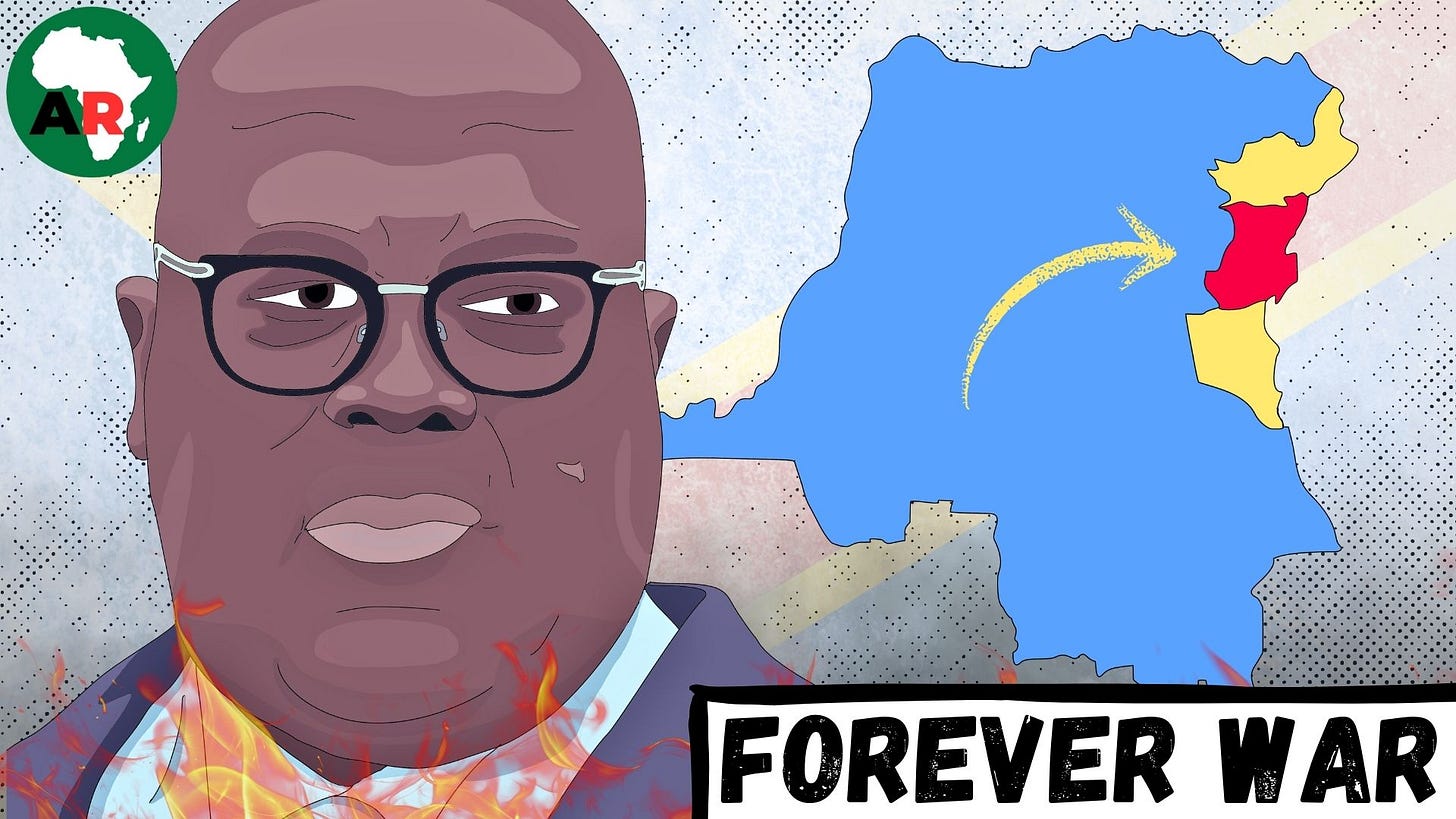
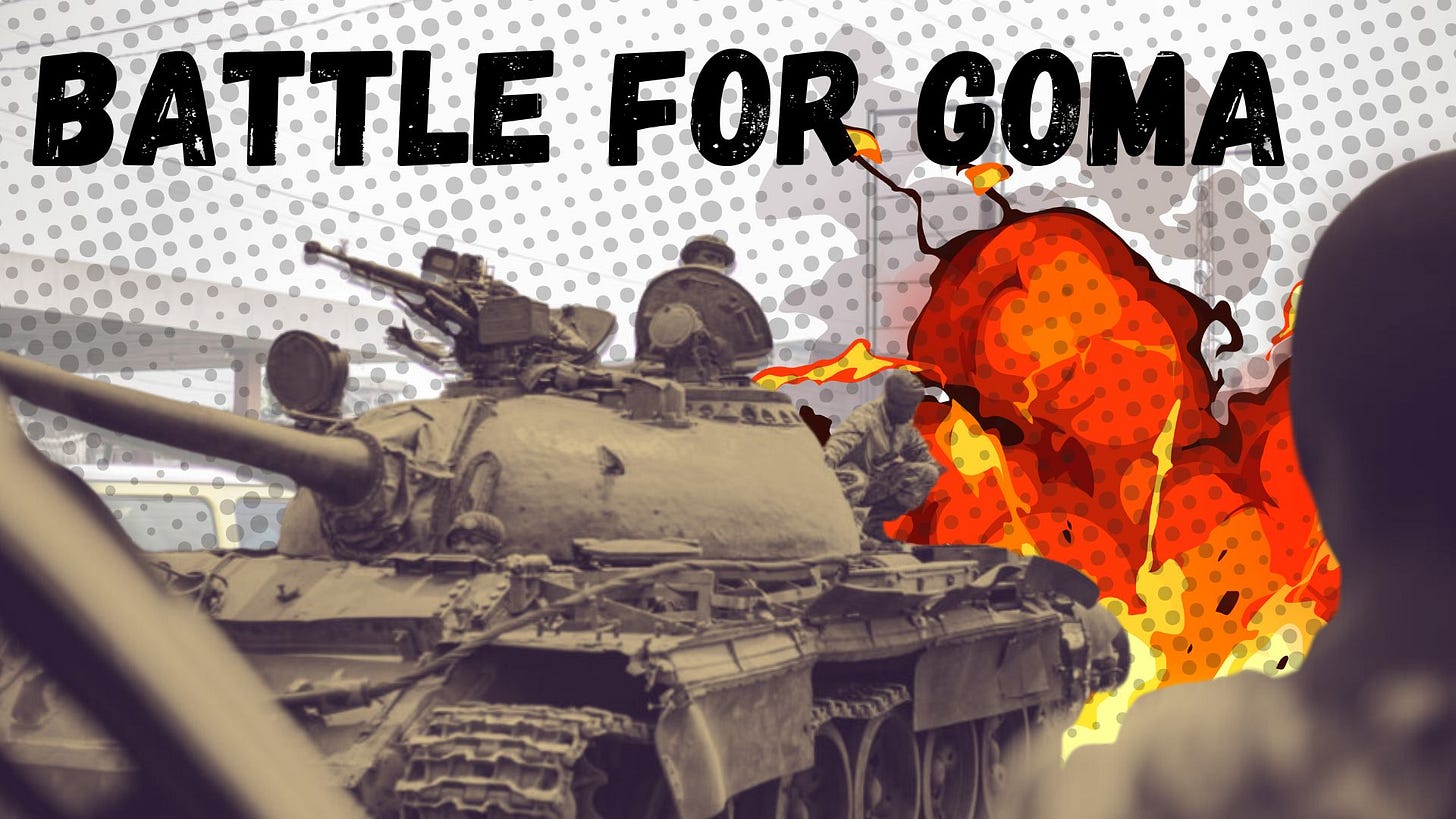
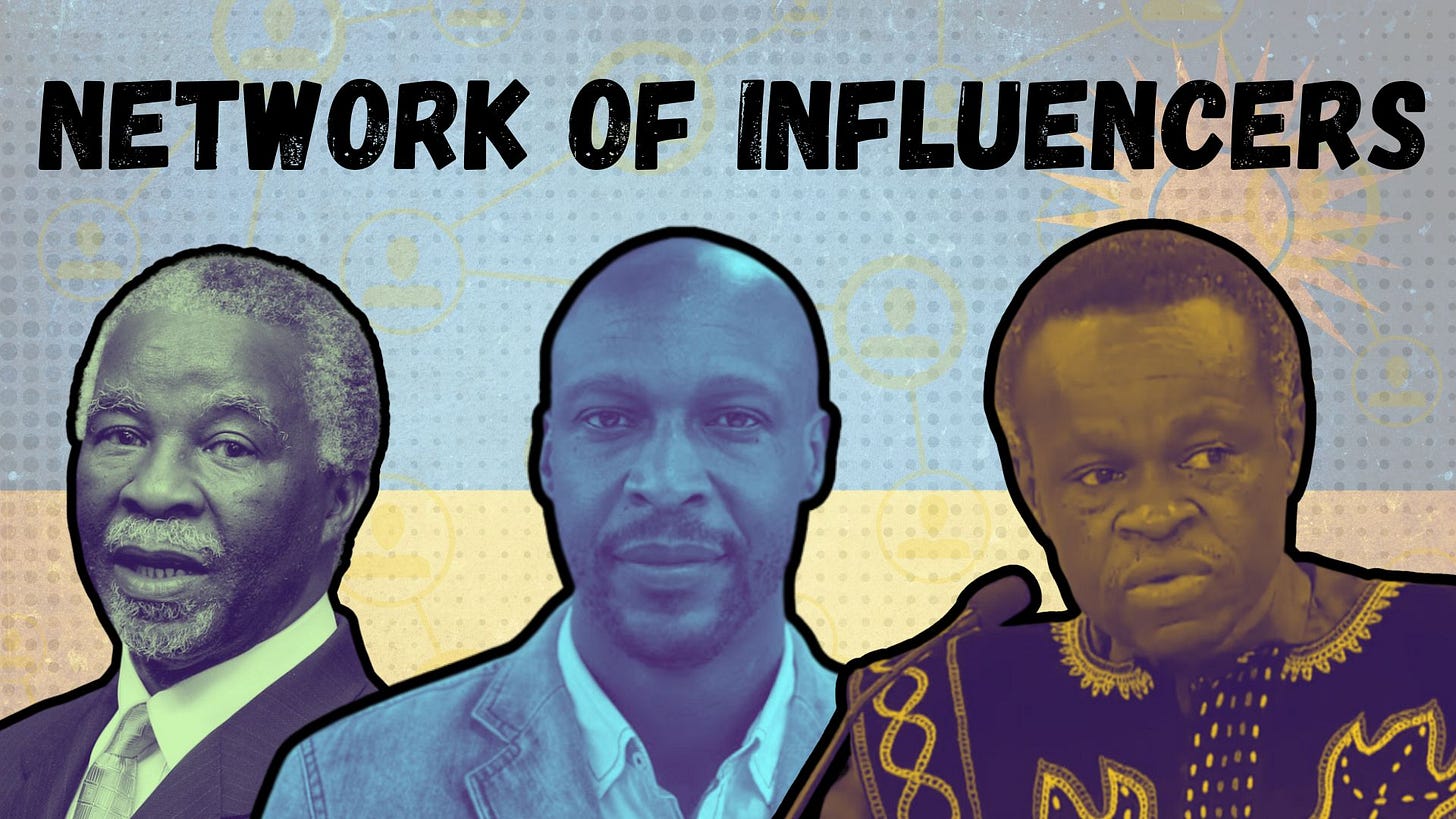

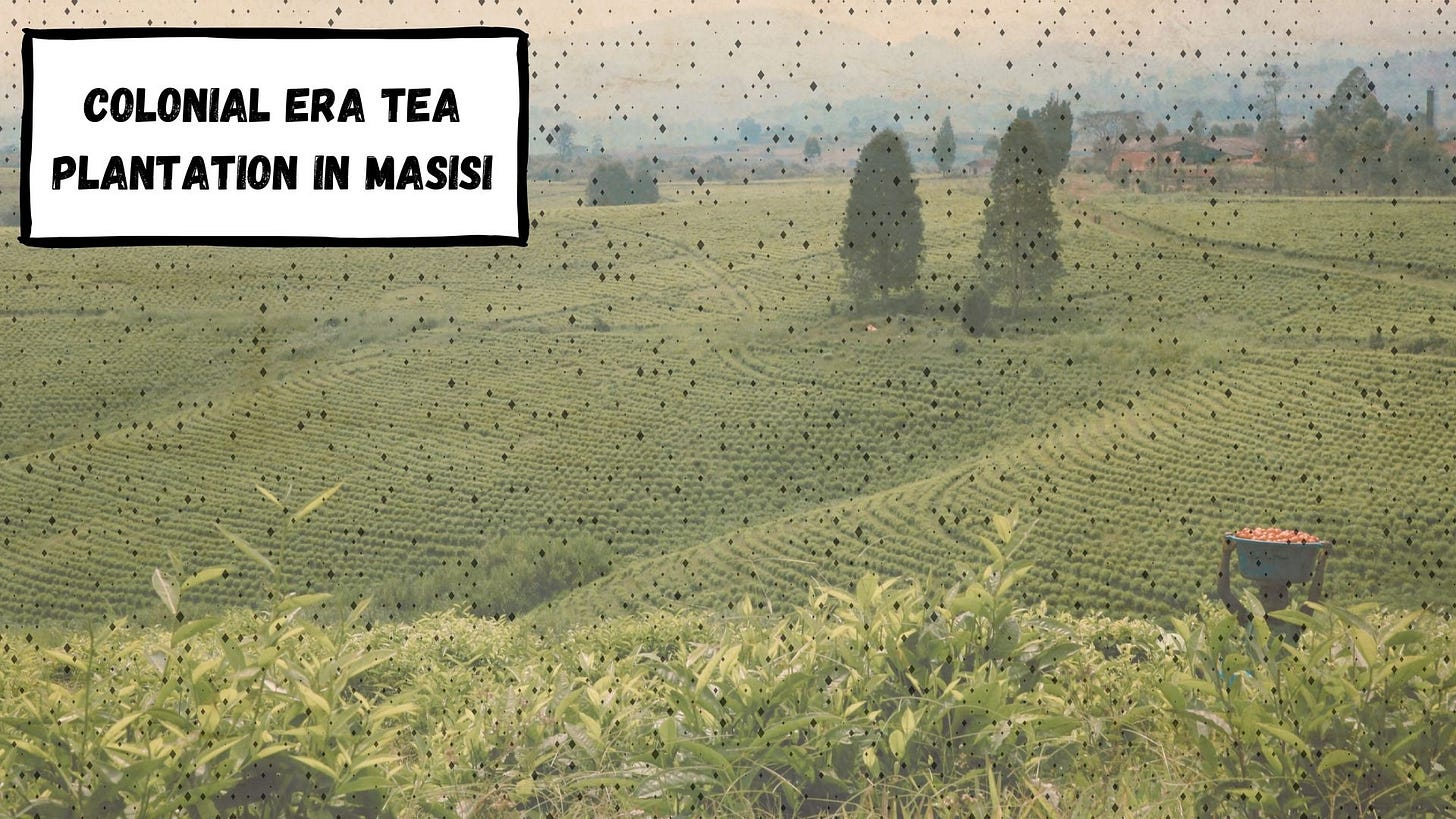
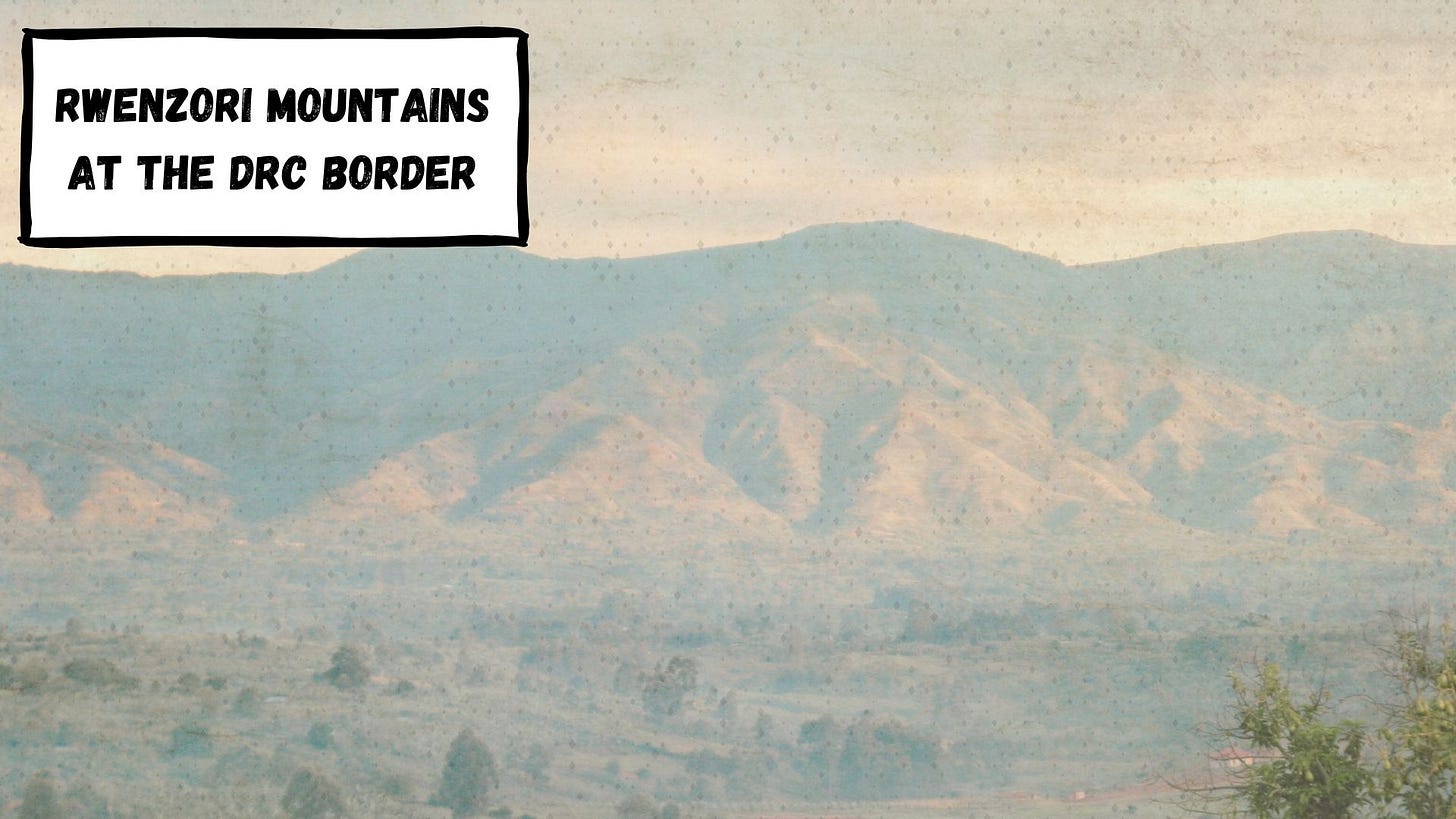
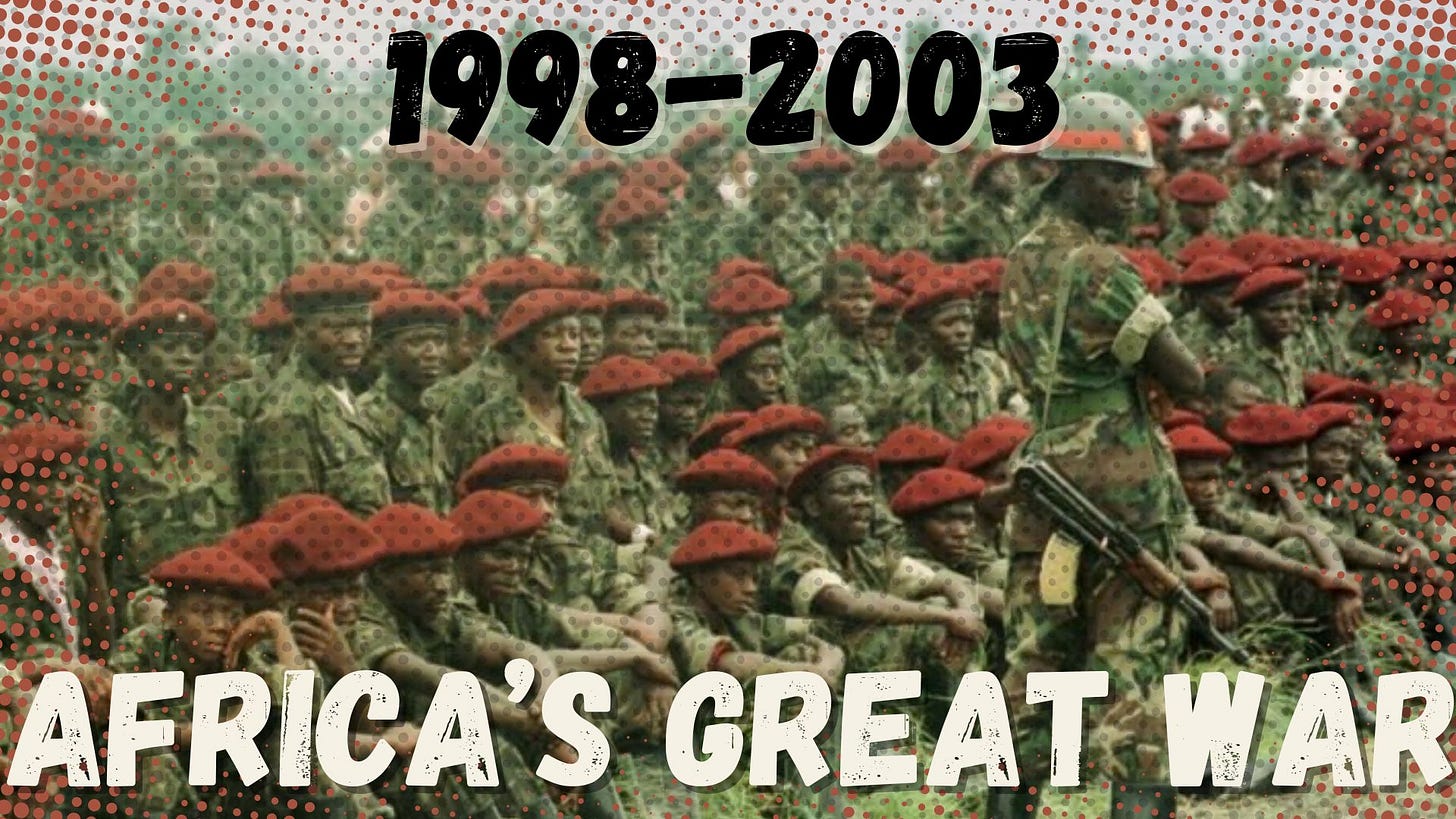
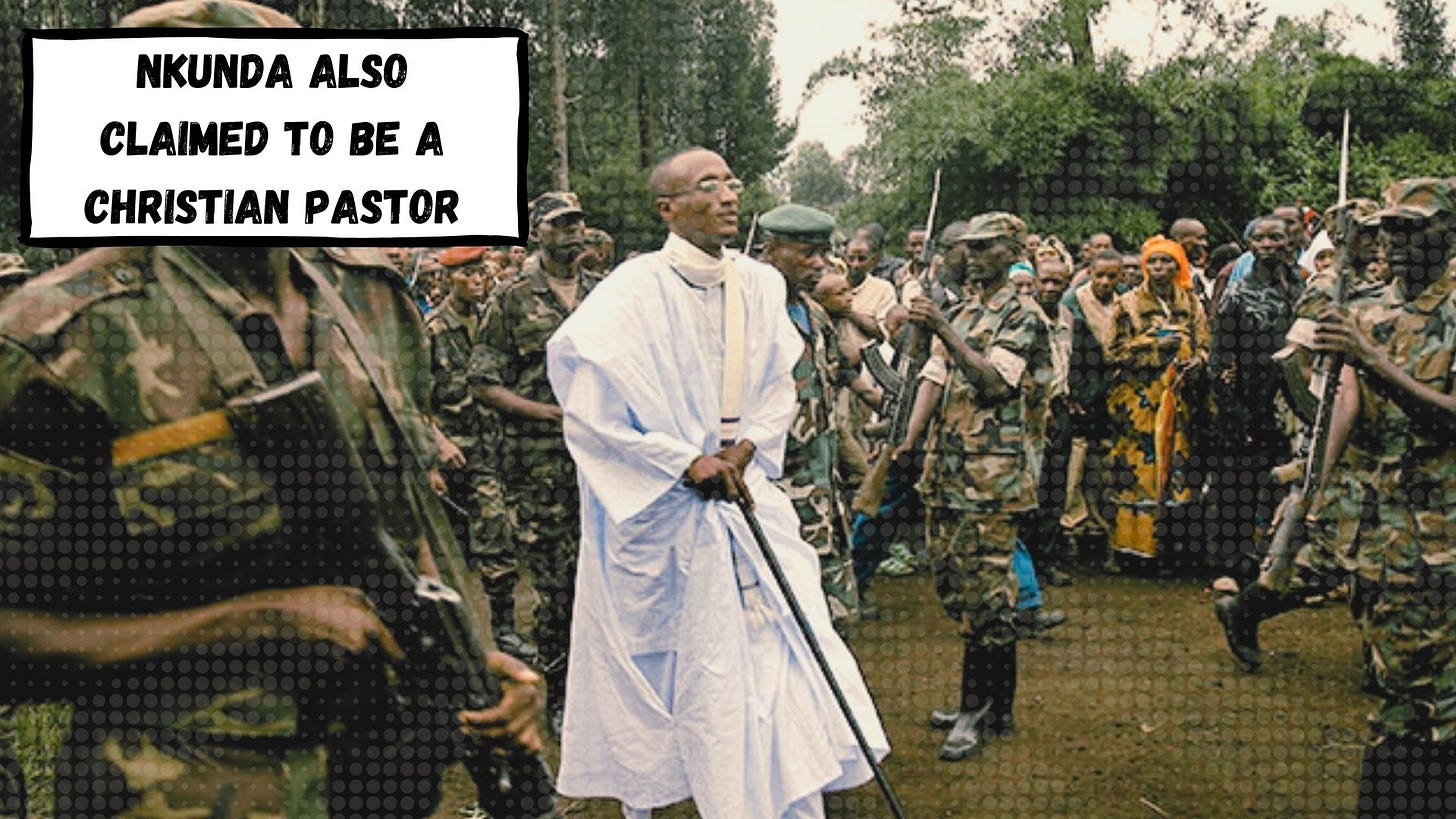
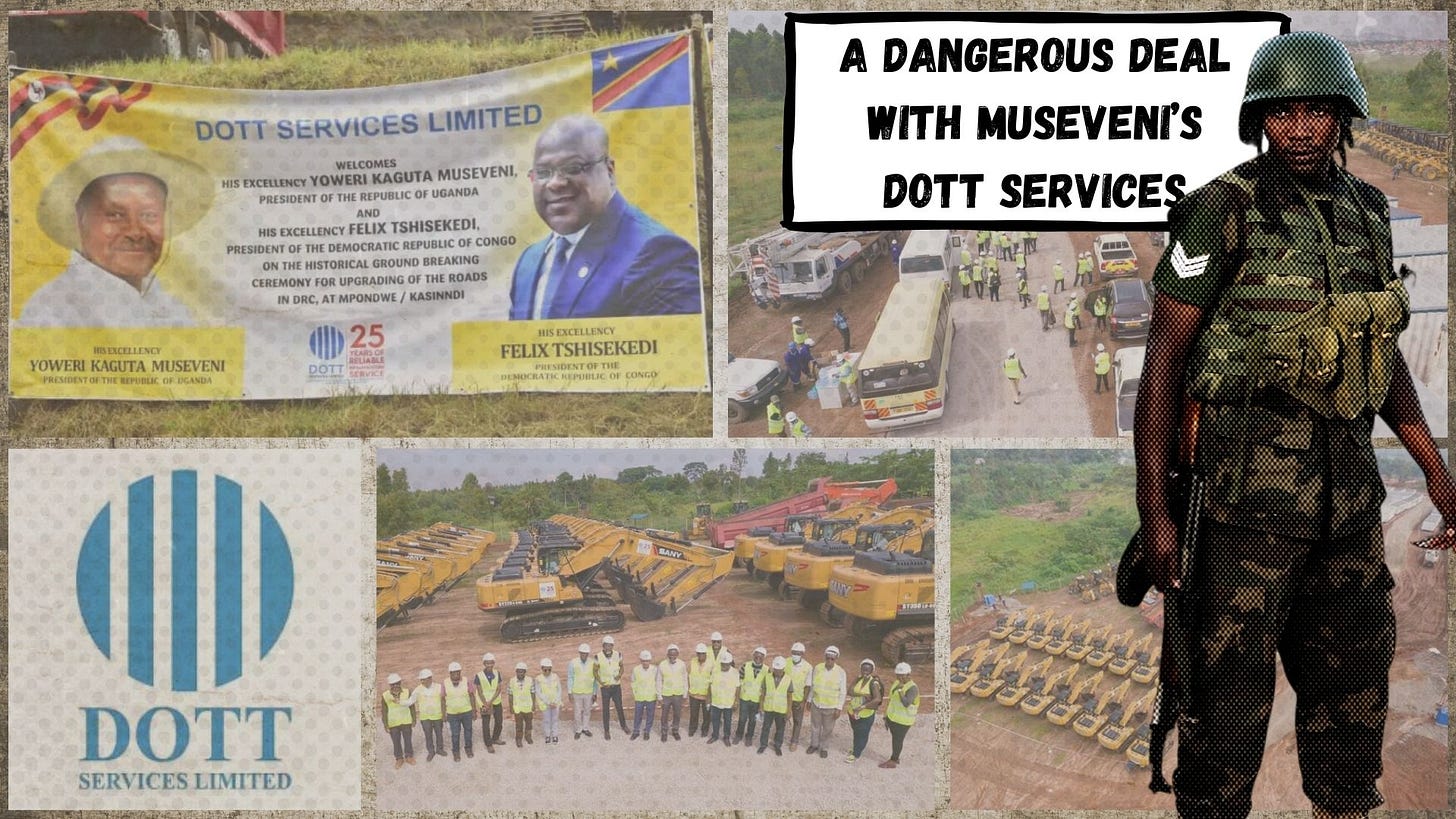
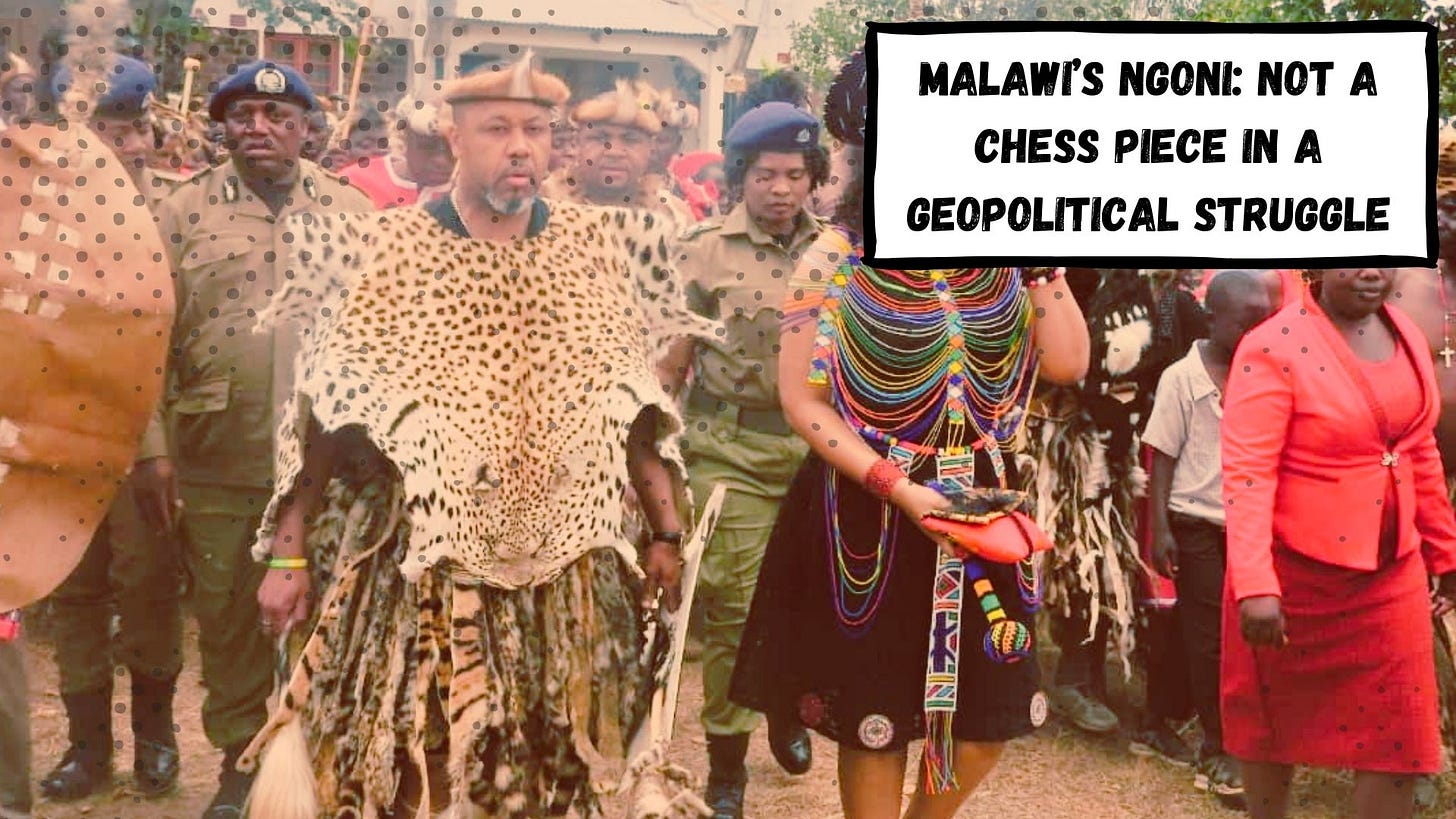
"But at its heart, this is an African problem which demands an African solution." Great article. Thank you for running through the history and providing much needed insights.
The region is probably the overall single biggest convergence point of capital "G" Globalizations sins, darkly ionically, as both the foolishness of their global structures design and the built up effects of their collective sins there, there's a chance it could be the physical action starting point of their demise should a third Congo War break out, spread bigger and worse than the Second, and break the supply of their needed cobalt, even if just for months, given the state they've brought themselves and so many of their vassals around the world to, the disruption's effects could cascade across their Global System and usher in their fall...